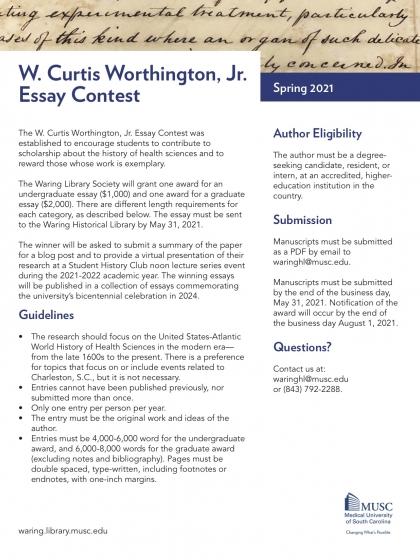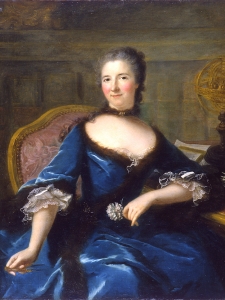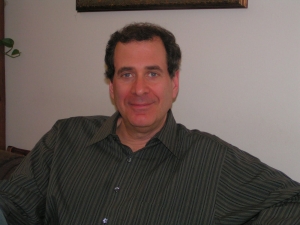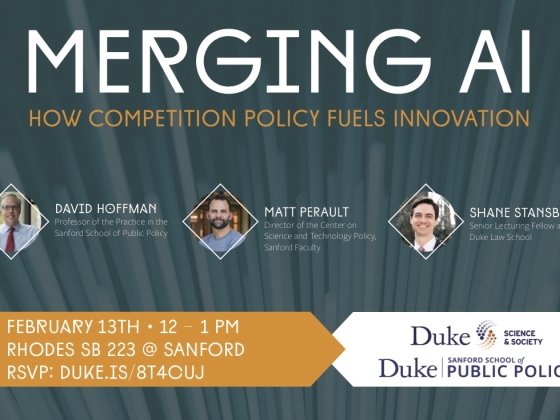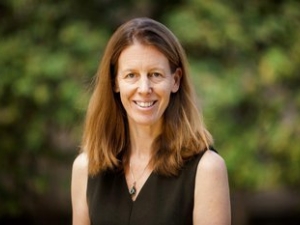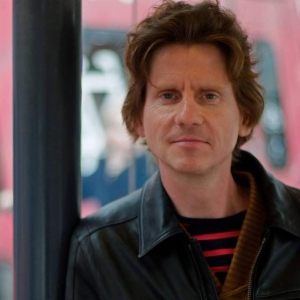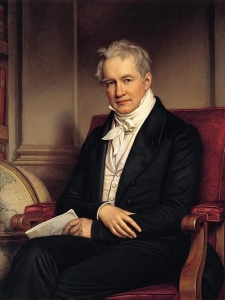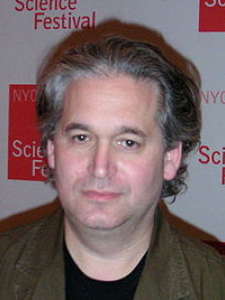Past Events
Call for Submissions: W. Curtis Worthington, Jr. Essay Contest
Deadline of May 31, 2021
The Waring Historical Library is now accepting applications for their W. Curtis Worthington, Jr. Essay Contest. This contest was established to encourage students to contribute to scholarship about the history of health sciences and to reward those whose work is exemplary.
The Waring Library Society will grant one award for an undergraduate essay ($1,000) and one award for a graduate essay ($2,000). The essay must be sent to the Waring Historical Library by May 31, 2021. To learn more about the submission guidelines, please visit https://musc.libguides.com/waring/worthington-contest-application
If you have additional questions, contact Anna Schuldt at the Waring Library Society at waringhl@musc.edu or (843) 792-2288.
January 25, 2021
Call for Fellowship Applications:
Application Deadline: January 25, 2021
The Beckman Center for the History of Chemistry at the Science History Institute is currently accepting applications for 2021-22 research fellowships. The Institute offers about 20 fellowships on an annual cycle for scholars whose research would benefit from the use of their collections.
The Center for the Historical Research offers:
- Postdoctoral fellowships (2 years)
- Dissertation fellowships for Ph.D. candidates, (9 months)
- Short-term research fellowships for researchers at all career levels (1-4 months)
- Distinguished Fellowships for established and senior scholars specifically researching the history of the chemical and molecular sciences (a Spring or Fall semester, 4 months)
The postdoctoral, PhD, and short-term research fellowships are open to scholars in any field whose projects would make substantial use of our collections, including the history and social study of science, food science, medicine, technology, women in science, environment, business, and art.
For more information, including a comprehensive guide for applicants and FAQ, visit www.sciencehistory.org/fellowships.
For additional questions, contact fellowships@sciencehistory.org.
December 18, 2020
Coronavirus Conversations: Restoring Faith in Public Science Agencies
December 18th, 2020 12:00pm - 12:45pm EST
Join Duke Science and Society for a virtual Fireside Chat with Dr. Anthony Fauci and Mr. Alan Alda. RSVP at duke.is/Wr6GRD.
For more information, please visit https://scienceandsociety.duke.edu/events/coronavirus-conversations-restoring-faith-in-public-science-agencies/.
For questions or concerns, please email timothy.mcdermott@duke.edu
March 27, 2020
STS and Economics: An Informal History
Time: Friday, March 27, 2020 - 3:30pm
Location: Allen 314
Talk by E. Roy Weintraub titled STS and Economics: An Informal History." Weintraub is a professor at Duke University in the Economics Department. Roy Weintraub was trained as a mathematician though his professional career has been as an economist. Beginning in the early 1980s, his research and teaching activities focused upon the history of the interconnection between mathematics and economics in the twentieth century.
Professor Weintraub's current research interests include, and his current projects involve, issues in the historiography of economics particularly the role of biography, autobiography, and letters.
This event is hosted by Duke's Center for Interdisciplinary Studies in Science and Cultural Theory.
March 3, 2020
Discussion of Grete Hermann’s 1935 work on quantum mechanics with Elise Crull
Time: Tuesday, March 3rd, 1:40-4:10pm
Location: West Duke 404, East Campus
In 1935, Grete Hermann -- a doctoral student of Noether's who pivoted from mathematics to neo-Kantian philosophy -- published one of the first and finest philosophical treatments of quantum mechanics. While her main aim in the essay was to demonstrate consilience between Kantian causality and the new indeterministic physics, she accomplishes far more: not only does she outline a novel natural-philosophical interpretation of quantum mechanics, but she also provides an arguably clearer exposition of Bohrian complementarity & correspondence than Bohr himself. Furthermore, she is the first person to draw attention in print to the uniquely quantum-mechanical phenomenon christened “entanglement" by Schrödinger later that year.
Elise Crull is Assistant Professor of Philosophy at CCNY, and her publications include a book on Grete Hermann’s philosophy of physics (2017), co-authored with Guido Bacciagaluppi, which includes the English translation of Hermann’s ‘Die naturphilosophische Grundlagen der Quantenmechanik’ (1935) that we will read as the basis for our discussion.
All welcome. Please contact Katherine Brading katherine.brading@duke.edu for a copy of the text. The discussion is taking place as part of the HPSTM core seminar.
Du Châtelet Prize in Philosophy of Physics: Prize Lecture
This has since been postponed to a later date.
February 7, 2020
Seeing the Invisible: 50 Years of Macromolecular Visualization
Time: February 7, 2020 – July 21, 2020
Location: The Jerry and Bruce Chappell Family Gallery
While visualizing proteins over decades, the Richardson Lab at Duke University has built and shaped a scientific community aiming to understand the molecular building blocks of life and of their associated medical applications.
This exhibition explores the history of protein visualization by following the contribution of the Richardsons, who have been intimately involved with the various advances over the last half century.
This event is hosted by DAVID M. RUBENSTEIN RARE BOOK & MANUSCRIPT LIBRARY
Submission Deadline of February, 1 2020
Call for Submissions: 2020 Du Châtelet Prize Prize in Philosophy of Physics
Submissions are invited for the 2020 Du Châtelet Prize in Philosophy of Physics. The topic for this year’s prize is: Mathematics as a tool of conceptual innovation in physical theory and/or experiment, 1780-1890.
The winner will receive $1000, an invitation to participate in a workshop to be held at Duke University, and an invitation to have their paper considered for publication in Studies in History and Philosophy of Science. The prize is open to graduate students and to scholars within 5 years of Ph.D. Submissions should not exceed 10,000 words.
The deadline for submissions is February 1, 2020.
The members of this year’s prize committee are: Katherine Brading (Duke University), Janet Folina (Macalester College), Doreen Fraser (University of Waterloo), Lydia Patton (Virginia Tech) and Sheldon Smith (UCLA). For more details of the prize and of submissions requirements, please go to https://duchateletprize.org.
The Du Châtelet Prize in Philosophy of Physics is supported by Duke University in collaboration with Studies in History and Philosophy of Science.
Application Deadline of February 15, 2020
Call for Applications: Vienna Summer School
The Vienna Summer School will be holding a two-week session from July 6-July 17, 2020 on Representation in Art and Science
An international team of scholars, including Chiara Ambrosio (University College London), Angela Breitenbach (University of Cambridge) and Dominic McIver Lopes (University of British Columbia) will be conducting a program of lectures, seminars, and tutorials directed to graduate students and focusing on a series issues described in detail at: https://www.univie.ac.at/vcs/SWC/. English is VSS’s official language.
This is an outstanding opportunity not only to broaden one's understanding of the relationship between the culture of science, its philosophy and scientific practice but also to establish connections with international colleagues. Duke students who attended the program in previous years were enthusiastic and felt the program contributed significantly to their graduate career.
Students in all disciplines are welcome to apply. As part of their exchange program, Duke and VSS will provide up to five full fellowships to successful applicants, covering tuition and accommodations. Recipients will receive also a significant airfare subsidy (minimally $1000). Apply directly to Vienna but send the Duke coordinator a brief note indicating that you have submitted your application (mhacohen@duke.edu). Vienna determines admission and will be contacting successful applicants. The deadline is February 15, 2020.
February 20, 2020
Using Our Scientific Interests to Design Science Communication Strategies
Using Our Scientific Interests to Design Science Communication Strategies: Most scientists lack training outside their respective fields of study – including principles of communication – which often hinders the confidence and skills required to effectively share their ideas to broader audiences. How can we, as scientists, re-wire our preconceptions about social sciences? How can we predict effective rhetorical communication strategies by exploiting our intrinsic passion for a particular scientific topic?
Dr. Efra Rivera-Serrano will be sharing how we can design unique communication strategies if we look at SciComm through the lens of our individual field of study. Efra is a Research Associate in the Department of Microbiology and Immunology at the University of North Carolina at Chapel Hill and the founder of #UniqueScientists, an online platform designed to celebrate and promote diversity, inclusion, and equity in STEM. RSVP
This event is hosted by Duke Science & Society
February 21, 2020
Evolutionary Anthropology Talk Series (E.A.T.S): W.E.I.R.D. Minds: How Westerners became psychologically peculiar and particularly prosperous.
Date: Friday, February 21st, 2020
Time: 11:40 AM - 1:00 PM
Location: Social Science 139
This event is hosted by the Department of Evolutionary Anthropology
February 20, 2020
The Anthropocene, The Technosphere, and Energy Use II
Date: Friday, February 20th, 2020
Time: 10:00 AM - 11:50 AM
Location: Allen 314
Duke’s Center for Interdisciplinary Studies in Science and Cultural Theory (CISSCT) sponsored a first workshop on this topic in December 2019. We focused then on Peter Haff’s concept of the “technosphere,” and his recent—perhaps counterintuitive—suggestion that addressing the dilemmas of climate change may involve finding ways to use more, rather than less, energy. Discussion focused especially on how a technosphere perspective relates to—or could be related to—a critical political economic perspective.
This second installment of the discussion will begin with short position statements by participants in the initial discussion, including Nima Bassari, Benjamin Crais, Peter Haff, Mark Hansen, Quran Karriem, Rob Mitchell, and Casey Williams.
Refreshments will be provided. This discussion is sponsored by Duke’s Center for Interdisciplinary Studies in Science and Cultural Theory (CISSCT). Please contact Carolin Benack (carolin.benack@duke.edu) with inquiries.
February 19, 2020
Discussion of Cardiff University ScienceHumanities initiative
Date: Wednesday February 19
Time: 2:45 - 4:00 PM
Location: Allen 314
This discussion will begin with two presentations:
Cerys Knighton (Cardiff University), “'Ffromi yn aruthr': Animalistic Representations of Manic-Depressive Illness in the Early-Nineteenth Century”
Jim Scown (Cardiff University), “Precipitating Eugene Wrayburn: Chemical Restoration and Exhausted Soils in Our Mutual Friend”.
Refreshments will be provided. This discussion is sponsored by Duke’s Center for Interdisciplinary Studies in Science and Cultural Theory (CISSCT). Please contact Carolin Benack (carolin.benack@duke.edu) with inquiries.
February 17, 2020
Charles Whitaker, Northwestern University, "Conflict and Crisis: How the Digital Revolution Upended Journalism and Democracy"
Date: Monday, February 17, 2020
Time: 4:30 PM - 5:45 PM
Location: Social Sciences 139
The digital revolution upended the media paradigm in ways that have both advanced and harmed society as we knew it. On the one hand, it democratized the production and dissemination of content, nullifying the influence of gatekeepers who once controlled the flow of information in print and across airwaves. But it also enflamed our tribal passions, allowing us to burrow into echo chambers that confirm our biases and stoke our grievances. And it hastened the dismantling of local and regional news outlets that served a vital function in the promotion of community and maintenance of our democracy. In this discussion, Whitaker traces the arc of the digital maelstrom, its socio-political consequences and tries to suggest a way forward.
This event is hosted by the Center for the History of Political Economy (HOPE)
February 14, 2020
New Perspectives on Nursing History: Women & Care in East Asia
Time: February 14, 2020 - 9:00 am to February 15, 2020 - 5:30 pm
Location: The King's Daughters Inn
Nurses across the world have had many common experiences. The uphill battle of professionalizing a job that women had long done inside homes for free and that required intimate contact with putrid and decaying bodies. Institutionalized patriarchy that associated nursing with feminine care work and locked nurses into lower pay and less respect than male doctors. The grueling demands of a job that pushed nurses to care for others far more than for themselves. This conference acknowledges these nearly universal experiences, but also pays close attention to the unique conditions of Confucian patriarchy, nation-building in an era of empire, caregiving in a time of war, and the imperative to provide medical care for a largely rural population that influenced the development of nursing in East Asia. Participants from Korea, China, Taiwan, Japan, Israel and the United States will discuss these issues in a two-day conference held at the King's Daughters Inn across the street from Duke's East Campus.
This event is hosted by Duke Center for International & Global Studies
February 14, 2020
Philosophy Colloquium: Jody Azzouni
Date: Friday, February 14th, 2020
Time: 3:30 PM - 5:30 PM
Location: West Duke 202
Mathematics, science, natural languages and algorithms: Research interests include interfaces between scientific disciplines, scientific languages, instruments and observation, applications of mathematics to empirical science, mathematical proof.
February 13, 2020
Merging AI: How Competition Policy Fuels Innovation
Date: Thursday, February 13th, 2020
Time: 12:00 PM - 1:00 PM
Location: Sanford School, Rhodes SB 223
This informal conversation between Sanford professors David Hoffman, Shane Stansbury and Matt Perault will explore the value of mergers for innovation in artificial intelligence technologies. Together, they will discuss the dynamics mentioned in this Wall Street Journal Article on tech giants and AI startup companies. This will be an informal conversation followed by a Q&A. RSVP at DUKE.IS/8T4CUJ
This event is hosted by Duke Science & Society
February 7, 2020
Exhibit Lecture: Inventing the Non-Smoker
Date: Friday, February 7, 2020
Time: 3:00pm - 4:00pm
Location: Rubenstein Library 153 (Holsti-Anderson Family Assembly Room)
Campus: West Campus
Dr. Sarah Milov, Professor of History at the University of Virginia, will discuss her recently published book, The Cigarette: A Political History (Harvard University Press, 2019), in conjunction with our new library exhibit in the Mary Duke Biddle Room, Tobaccoland.
Through collections housed in the Rubenstein Library, the exhibit highlights the rise of the cigarette in American consumer culture, Duke’s historic connection to the tobacco industry, and current debates surrounding vaping.
This event is hosted by DAVID M. RUBENSTEIN RARE BOOK & MANUSCRIPT LIBRARY
January 30, 2020
In the Beginning Were the Words: Technological Speaking and Thinking Before a Philosophy of Technology
Date: Thurs, Jan 30th 2020
Time: 4:00 PM
Location: Rubenstein 249
Speaker: Jocelyn Holland, Professor of Comparative Literature, Caltech
To scholars of Idealism and Romanticism, the years leading up to 1800 are known as a time of bold system-building and poetic experimentation. In this talk, I focus on a less-explored aspect of the same time period: where self-described “technologues” tried and, by their own admission, failed to come up with a theoretically sound account for the science of technology. Their sense of failure sprang from an inability to manage proliferation of technical terms, from a lack of consensus on the basic divisions of technology (including whether the fine arts should be included under its umbrella, with aesthetics as an “auxiliary science”), to unsuccessful attempts at constructing technological systems.
This talk examines technological thinking and speaking from the ground up. It begins with the problem of language before asking to what degree the failures of technological theories, with their incomplete gestures towards completion and perfection (Vollkommenheit), are themselves interesting and instructive as increasingly elaborate attempts to build conceptual frameworks. I begin with a brief meditation on Leibniz’s Unpresuming Thoughts on the Use and Improvement of the German Language (c. 1697), with its reflections on technological words, before diving into the late eighteenth-century quagmire of technological writing, drawing upon examples from Beckmann, Lamprecht, Cunradi, Walther, and others.
December 10, 2019
Philosophy Colloquium: Anjan Chakravatty
Date: Tuesday, December 10th, 2019
Time: 11:30 AM - 1:00 PM
Location: West Duke 101
Title: Belief, rationality and forms of scientific disagreement
Professor Chakravatty's research interests include debates about scientific realism and antirealism, the nature of dispositions, causation, laws of nature, natural kinds, scientific modeling and representation, and disagreement, and interconnections between science, metaphysics, and epistemology.
December 10, 2019
HPSTM Holiday Refreshments
Date: Tuesday December 10th
Time: 3:00-4:30pm
Location: Philosophy Department lounge, West Duke Building
Come by and chat about shared interests and plans for the future while enjoying some festive refreshments. CISSCT Workshop "The Anthropocene, The Technosphere, and Energy Use
December 9, 2019
Date: Monday, December 9, 2019
Time: 11:30 AM - 2:00 PM
Location: Allen 314
Duke’s Center for Interdisciplinary Studies in Science and Cultural Theory (CISSCT) is sponsoring a workshop on “The Anthropocene, The Technosphere, and Energy Use.” The workshop will be held on , from 11:30 a.m. -2 p.m., in the Allen Building (Room 314). The workshop will focus on Peter Haff’s concept of the “technosphere,” and his recent—perhaps counterintuitive—suggestion that addressing the dilemmas of climate change may involve finding ways to use more, rather than less, energy. Participants are asked to read two short pieces before the workshop: Peter Haff’s “The Technosphere and its physical stratigraphic record" (2019), and a short selection from N. Kate Hayle’s Unthought: The Power of the Cognitive Nonconscious (2017) (which links the question of energy to that of information). Pdfs of these readings (as well as several other short optional readings) will be sent to workshop participants.
The workshop will begin with short statements by Peter Haff (Emeritus, Nicholas School of the Environment), Mark Hansen (Literature), and Rob Mitchell (English), and the rest of the workshop will be devoted to discussion among all participants. Boxed lunches will be provided. So that we can order the correct number and kind of lunches, and to keep the group small enough to enable conversation (i.e., maximum 25 people), we ask that you register at the following site if you are interested in participating: https://forms.gle/rVWhRZaLdTKgtuRXA
If you have any questions about this event, please contact Carolin Benack at carolin.benack@duke.edu
December 6, 2019
Philosophy Colloquium: Rasmus Winther
Date: Friday, December 6th, 2019
Time: 3:30 PM
Location: West Duke 202
Title: When Maps Become The World
Research interests are Philosophy of Science, Biology (Genetics, Evolutionary Theory, Psychology
and Consciousness Studies, Mathematics, Epistemology, Culture, History, Latin American Philosophy,
Pragmatism, 20th Century Analytic/Continental Philosophy, Kant to Hegel.
November 15, 2019
Philosophy Colloquium: Sarah Hutton on Emillie du Châtelet’ and James Jurin
Date: Friday, November 15
Time: 3:30 PM
Location: West Duke 202
Title: Emilie du Châtelet and James Jurin: the context and fortunes of their brief correspondence
Abstract: In this paper I discuss Madame Du Châtelet’s critique of James Jurin (1684-1750) fellow of the Royal Society, London, of which he had served as secretary between 1722-1727. Their letter exchange was sparked by Du Châtelet’s critique of Jurin’s position on forces vives (living forces) in her Institutions physiques. It drew a response from Jurin (now lost), to which she replied. It also figures in her dispute with Dourtous de Mairan, and was printed in Italy in 1747. I shall review Du Châtelet’s arguments and set the correspondence with Jurin in context in order to shed light on Du Châtelet’s standing in scientific circles of her time.
November 4, 2019
Symposium: TALENT FROM ALL CORNERS: HOW IMMIGRATION HELPS SHAPE AMERICAN SCIENTIFIC LEADERSHIP
Time: 4 November 2019, 3:00-6:00 PM
Location: Searle Center Conference Room
Please RSVP here
For more information go to: https://scienceandsociety.duke.edu/events/talent-from-all-corners-how-immigration-helps-shape-scientific-leadership/
November 1-2, 2019
Alexander von Humboldt 250th anniversary celebration: Celebratory Colloquium
Date: 1-2 November 2019
Location: Forest History Society, 2925 Academy Rd., just off Duke’s West Campus
For more information go to https://nicholas.duke.edu/events/save-dates-duke-celebrates-alexander-von-humboldts-250th
Note: There is also a Humboldt reading group this semester. If you are interested in participating in this, please contact either Daniel Richter, Prof. Soils and Ecology, or Zackary Johnson, Prof. of Molecular Biology in Marine Science, in the Nicholas School of the Environment.
October 25, 2019
HPS Lunchtime Discussion: Stefani Engelstein
Please join us on Friday, October 25th, for an informal lunchtime discussion with Stefani Engelstein.
Time: 11:30-1:00
Location: 202 West Duke Building, East Campus
These lunchtime discussions provide a venue for faculty with interests in HPS to learn about one another’s work and discuss topics of mutual interest. Please bring your own lunch.
October 16, 2019
David Albert, “How to teach Quantum Mechanics - Part II” (UNC Event)
Date: October 16
Time: 1:00-3:00pm
Location: Gardner 309, UNC
October 15, 2019
The 2019 Polanyi Lecture. David Albert, “The Problem of the Direction of Time” (UNC Event)
Date: October 15
Time: 5:30pm
Location: Nelson Mandela Auditorium, FedEx Global Education Center, UNC
More information: https://www.unc.edu/event/polanyi-lecture-david-z-albert/
October 14, 2019
David Albert, “How to teach Quantum Mechanics - Part I” (UNC Event)
Date: October 14
Time: 1:00-3:00pm
Location: Caldwell 213, UNC
More information: https://philosophy.unc.edu/event/polyani-visitor-talk-david-albert-columbia/
October 1, 2019
Alexander von Humboldt 250th anniversary celebration: Public Lecture and Lynn W. Day Lectureship by Andrea Wulf, best-selling author of The Invention of Nature
Date: 1 October 2019
Time: 6:30-8:00pm
Location: Love Auditorium, Levine Science Research Center (LSRC) on Duke’s West Campus. Parking in Bryan Center parking lot and deck. Learn more.
September 13, 2019
Philosophy Colloquium: Elaine Landry
September 6, 2019 – On Friday, September 13, in West Duke 202, Elaine Landry from UC Davis will give a talk. Her research interests include history and philosophy of mathematics, history and philosophy of science, and Plato's philosophy of mathematics. Read more about Dr. Landry here.
September 12-13, 2019
The Srinivas Aravamudan Annual Lecture in Critical Theory: John Durham Peters
September 6, 2019 – On September 12 & 13, in Friedl Building Rm 115, John Durham Peters from Yale is going to give the Srinivas Aravamudan Annual Lecture in Critical Theory. The first day's topic is PICTURING WEATHER, PICTURING CLIMATE and the second day's topic is TIME AND OTHER PROBLEMS IN MEDIA THEORY. Read More->
April 4-5, 2019
Du Châtelet Prize workshop
Du Châtelet Prize in Philosophy of Physics 2019: Workshop
Thursday April 4th – Friday April 5th
Duke University
A workshop on the topic of this year’s prize “How matter acts on matter: unsolved problems in the philosophy of physics, 1680-1780” at which this year’s winner will be our honored speaker, and with additional talks by members of the prize committee.
Thursday April 4th
Friedl Building 107, East Campus
2:00pm Opening remarks
2:05pm Andrew Janiak (Duke University)
“A complete book of physics: Madame Du Châtelet’s Institutions”
3:15pm Mary Domski (University of New Mexico)
“Newton on the Nature and Scope of Natural Knowledge”
4:30pm Du Châtelet Prize presentation
4:35pm Du Châtelet Prize Lecture: Adwait Parker
“Newton on Active and Passive Quantities of Matter”
Friday April 5th
Classroom Building 125, East Campus
9:30am Chris Smeenk (University of Western Ontario)
“Newton and Phenomenalism"
10:45am George Smith (Tufts University)
“The Mysteries of Liquids and Viscosity”
Lunch break
1:00pm Katherine Brading (Duke University)
“Du Châtelet on collisions”
Attendance is free and open to all.
March 5, 2019
"Intoxicants and the Invention of 'Consumption'"
Hosted in Classroom (Formerly Carr) 229
12:00 - 1:30 PM
Lunch provided. RSVP if you will attend.
Abstract: In 1600 the word 'consumption' was a term of medical pathology describing the ‘wasting, petrification of things’. By 1700 it was also a term of economic practice: ‘In commodities, the value rises as its quantity is less and vent greater, which depends upon it being preferred in its consumption’. This paper examines how a term of medical pathology became a normative economic descriptor. It also considers the concerns and issues that informed this semantics and why, in particular, 'intoxicants' like alcohols and tobaccos figured so prominently in its appropriation by early mercantilist writers.
March 1-2, 2019
Workshop on Cognitive Control and Responsibility
Sponsored by the: John Templeton Foundation, Duke Institute for Brain Sciences, Center for Cognitive Neuroscience, Department of Philosophy at Duke University
Place: Multipurpose room – Duke Institute for Brain Science
Organizers: Santiago Amaya (Universidad de los Andes) and Felipe De Brigard (Duke University)

